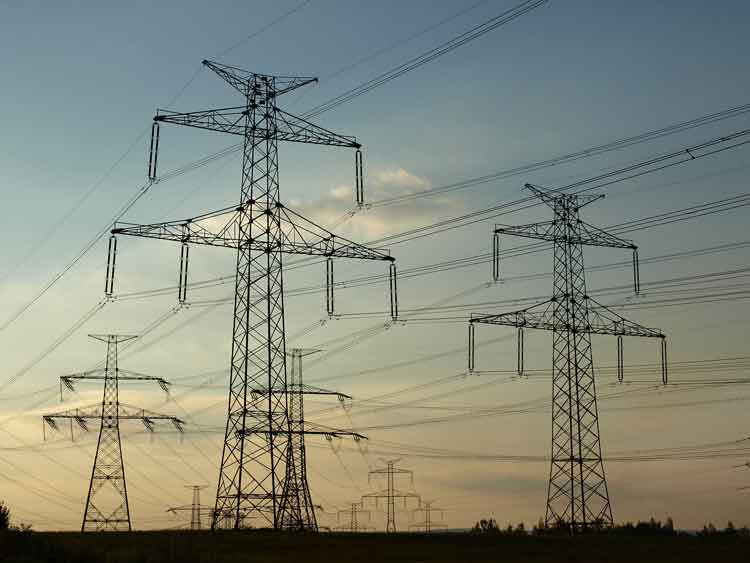Storm hits B.C. coast
VICTORIA, B.C. - A powerful Pacific storm packing strong winds and heavy rains walloped British Columbia's south coast November 15, turning falling trees into missiles, knocking out power and leading to cancelled ferry sailings and float plane flights.
But the same storm also brought smiles to resort operators in Whistler, where the ski and snowboard season is about to begin.
Wind and rainfall warnings were posted for most of the B.C. Lower Mainland and Vancouver Island.
Electricity was cut off before daybreak to about 8,000 customers in Sechelt, Whistler, Bowen Island and Quadra Island, B.C. Hydro said.
A neighbourhood in West Vancouver was evacuated because so many trees were knocked down by the wind.
In Port Alberni, on Vancouver Island, Valorie Smith had to take a different route to her job at a grocery store because tree branches were littered across the road on her regular route.
“Branches were hitting my husband's new truck. I could hardly see, sheets of rain couldn't be taken off the windshield fast enough, I was really scared.”
Vince Louzon, of Port Alberni's city works yard, said people should just “stay home.”
He said storm drains are overflowing. Pumps were given out to some residents in a particularly hard-hit neighbourhood, but they were left useless when the power went out.
“This is the worst rain event anybody in the yard can remember,” Mr. Louzon said.
“We've got about 50 basements that were flooded at last count.”
Pandemonium reigned at the Daily Roast coffee bar in Sechelt, B.C., one of the few spots with power on the Sunshine Coast north of Vancouver.
“It's nasty out there,” said Candy, a harried barrista. “We've had a steady lineup for the past hour out the door.”
She said customers reported significant outages.
“We've had calls from pretty much all over the (Sunshine) coast finding out if we're open.”
Harbour Air cancelled its float plane service between Vancouver and Victoria and Nanaimo, although West Coast Air was able to maintain flights between Vancouver and Victoria.
A helicopter service between Vancouver and Victoria was not affected but westbound flights were bucking strong head winds.
Wind gusts forced B.C. Ferries to cancel or delay sailings on major routes linking the B.C. mainland to Vancouver Island and the Gulf Islands.
But the situation was different in the resort community of Whistler.
While there were some minor power disruptions about 5 a.m., they appeared to be confined to specific residential areas and were repaired quickly.
In the mountains north of Vancouver, the torrential rain soaking the lower levels fell as snow.
“It's snowing a lot,” said Ryan Proctor, a spokesman working at the base of the Intrawest Corporation's Whistler-Blackcomb ski hills. “It's dumpin' right now.”
Whistler Mountain opens for the season November 18.
“We're excited to get all this snow,” he said. “It's all fantastic news.”
Winds up to 100 kilometres an hour in some areas were forecast by Environment Canada, which warned of rainfall amounts of 50 to 110 millimetres through the day.
But the province's River Forecast Centre did not issue a flood watch, even though some coastal rivers were expected to rise.
And search and rescue officials in B.C. reported only minor incidents on coastal waters early November 15, despite the high winds.
“We don't have anybody in danger at this time,” reported marine controller Mike Stacey at the Joint Rescue Co-ordination Centre in Victoria.
“We've had a number of incidents that were related to the heavy weather but everything's ended up happily.”
He said there was ample warning of the storm so most people had “battened down” beforehand.
Despite the rain, the Chilliwack River in the eastern Fraser Valley was reported to be receding.
A storm known as a “Pineapple Express” carried warm winds and record rains to the area earlier this month, sending the river over its banks and forcing the evacuation of about 200 families. Smaller evacuations occurred near Hope.
Environment Ministry officials on Vancouver Island kept a watch on the threatening Cowichan River for local flooding.
Complicating matters, in the pre-dawn hours, a tsunami watch was issued for the outer coast of the province after a strong 8.3-magnitude earthquake northeast of Japan.
It was cancelled after several hours when regions of Japan and Alaska reported only minor 30-centimetre waves.
Related News

California avoids widespread rolling blackouts as heat strains power grid
LOS ANGELES - California has avoided ordering rolling blackouts after electricity demand reached a record-high Tuesday night from excessive heat across the state.
The California Independent System Operator, which oversees the state’s electrical grid, imposed its highest level energy emergency on Tuesday, a step that comes before ordering rolling blackouts and allows the state to access emergency power sources.
The Office of Emergency Services also sent a text alert to residents requesting them to conserve power. The operator downgraded the Stage 3 alert around 8:00 p.m. PT on Tuesday and said that “consumer conservation played a big part in protecting electric grid…




